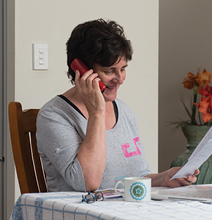
Cliquer ici pour lire cet article en français
On 8th December, seniors from Bulgaria, Slovakia, Slovenia, Portugal, Italy, Greece and Belgium had the opportunity to speak directly to Members of the European Parliaments (MEPs). Seniors called MEPs to support the rights of older people and a society for all ages, and called to re-establish the Intergroup on Ageing and Intergenerational Solidarity. They also shared their experiences from the ‘Active Senior Citizens for Europe’ project which trained groups of older people on the European Institutions and EU decision making processes from September 2013 to December 2014.
 Hosted by MEP Eduard Kukan, the event was organized in the European Parliament by AGE Platform Europe in the framework of the project ‘Active Senior Citizens for Europe‘ co-financed by the Europe for citizens program. The project aimed at training groups of seniors on the European Union and on its decision making processes. The project gave a boost to older people organisations in Europe in developing closer relationships with their MEPs, understanding the EU institutions and decision making processes and in better understanding the role of MEPs.
Hosted by MEP Eduard Kukan, the event was organized in the European Parliament by AGE Platform Europe in the framework of the project ‘Active Senior Citizens for Europe‘ co-financed by the Europe for citizens program. The project aimed at training groups of seniors on the European Union and on its decision making processes. The project gave a boost to older people organisations in Europe in developing closer relationships with their MEPs, understanding the EU institutions and decision making processes and in better understanding the role of MEPs.
The conference was a great opportunity to gather both feedbacks from the training sessions at national level and seniors’ expectations for an age-friendly European Union. For many of them, that was the first time they received such information on the European Union. For some of them, the project gave a great opportunity to become a trainer on that topic.
During the conference, seniors mentioned the impact of austerity measures especially in countries under the troika. Besides, they highlighted the need to fight poverty in old age, including by acquiring decent pensions but also in facilitating access to goods and services for older people. They also supported a United Nations Convention for the rights of older people, and the need to recognize life-long learning opportunities at all ages as part of active citizenship. MEPs Ivo Vajgl, Ana Gomes, Heinz Becker, Alojz Peterle, Sofia Ribeiro, Sirpa Pietikainen highlighted their commitment to support an age-friendly EU during their mandate. Organizers also thank MEPs Maria Gabriel and Miltiadis Kyrkos for their participation in the conference.
ASCE partners finally met on 9th December to share ideas on how to work with participatory approaches and support active citizenship of seniors. The MOPACT project appeared to be a very good opportunity to continue sharing such practices, while senior organisations will continue to work together to influence European decision making processes in the coming years. Organisations at national level will for example create reference groups in each of the MEPs constituency and organise meetings with them on a regular basis, inviting also other stakeholders such as local and regional authorities. Senior organisations will furthermore continue their efforts to get involved in the campaign on age-friendly environments for the launch on a Covenant on Demographic change.
The project results are available here www.age-platform.eu/age-work/age-projects/active-citizenship.
You can download the conference report here.
For more information, please contact Maude Luherne, project coordinator maude.luherne@age-platform.eu
and Alice Sinigaglia, project and policy officer alice.sinigaglia@age-platform.eu
.
Organizers would like to give special thanks to Mrs. Nadezhda Todorovska, who spoke in the name of Mr. Evlogi Mitov, Mrs. Ekaterina Dimova, Mrs. Lubica Galisova, Mrs. Ellen Reddin, Mr. Michael Maler and Mr. Renato Gomes for their speeches on 8th December.






